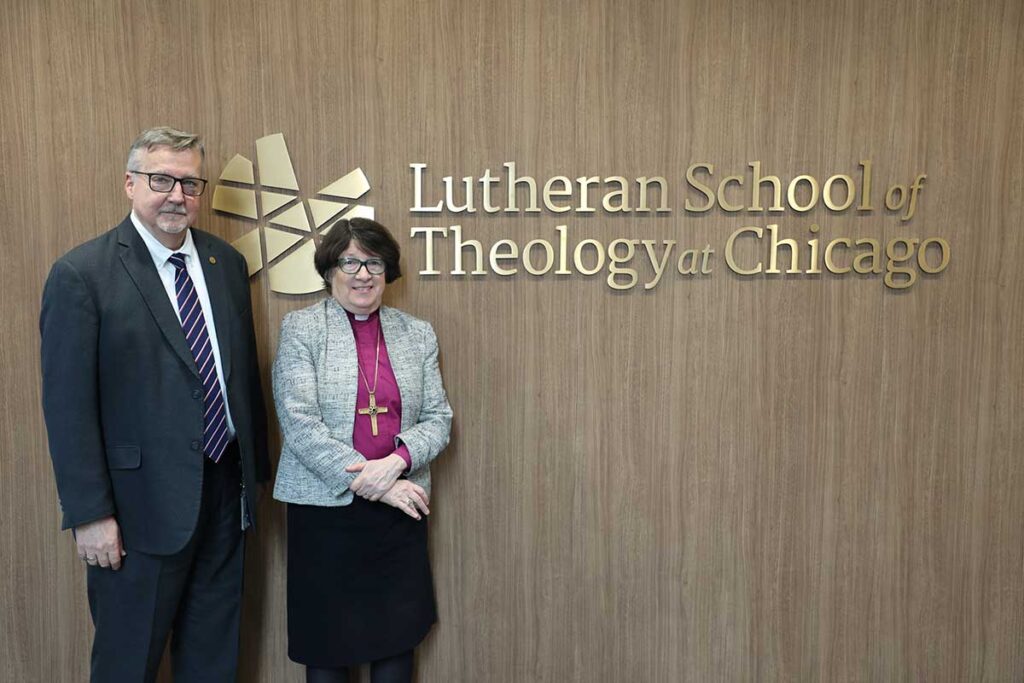ELCA Presiding Bishop Elizabeth Eaton’s Historic Visit to LSTC Reaffirms Commitment to Lutheran-Jewish Reconciliation

The Lutheran School of Theology at Chicago was deeply honored to welcome ELCA Presiding Bishop Elizabeth Eaton for her first visit to campus, where she met with institutional leaders, took a tour, and participated in a powerful reflection on the ELCA’s “Declaration to the Jewish Community.” This pivotal 1994 document, crafted in close partnership with the Consultative Panel on Lutheran-Jewish Relations, acknowledges the painful legacy of Martin Luther’s anti-Judaic writings, repudiates them, and articulates a profound commitment to fostering understanding and right relationship between Lutherans and the Jewish community.
Bishop Eaton’s visit underscored the ELCA’s living commitment to these principles, especially in a time when the echoes of history call upon us to speak and act with clarity and compassion. In the long and often tragic history of Christian relations with Jewish communities, few expressions of accountability and repentance have been as necessary as those addressing the actions of Lutheran Christians. Lutheran communities carry a unique burden in this regard, given the significant influence of Martin Luther and the appropriation of his writings to justify anti-Semitism—a reality that culminated in unimaginable suffering, including the Holocaust. The Lutheran communion of faith now fully acknowledges the dark legacy of certain elements of Luther’s work. With sorrow, we recognize how these teachings were tragically used to fuel centuries of discrimination against Jewish people, often in areas where Lutheranism held sway.
This gathering, featuring reflections from Bishop Eaton, Rabbi Rick Jacobs of the Union for Reform Judaism, and Professor Esther Menn, Chair of the ELCA’s Consultative Panel on Lutheran-Jewish Relations, reaffirmed the ELCA’s commitment to truth, repentance, and love in action. Together, they explored the continued relevance of the 1994 declaration, acknowledging the depth of the wounds caused and committing anew to address anti-Semitism as a profound contradiction to the Gospel’s message of grace. Bishop Eaton’s words and presence at LSTC served as a visible sign of the ELCA’s determination to resist the forces of hatred, confront historical legacies, and promote cooperation and understanding with Jewish communities.
Bishop Eaton’s visit, marked by heartfelt engagement with our community, stands as a testament to our shared mission: to oppose bigotry, build bridges of dialogue, and live out a faith defined by love, humility, and respect. As we look forward, LSTC is committed to embodying these values and invites our entire community to join in this mission of reconciliation, learning, and transformation.